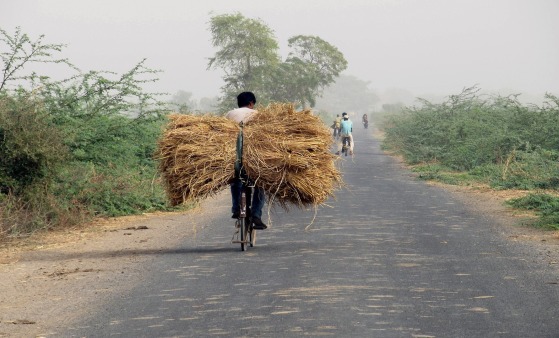
Open Doors International, a global Christian organisation supporting persecuted Christians, has reported a concerning rise in hostility against religious minorities in India, particularly Christians. According to their latest update, this surge in persecution is believed to be linked to the recent electoral setback suffered by the ruling Bharatiya Janata Party (BJP).
As per the report, the organisation's local partners and Christian contacts in India suggest that a "revengeful drive" is underway, targeting religious minorities in the wake of the BJP's unexpected loss of its majority in recent elections. This retaliation has manifested most notably in a spate of arrests of Christians in the northern state of Uttar Pradesh during June.
Open Doors reports that at least 14 Christians, including two pastors, were detained in Uttar Pradesh between 7 and 23 June. The arrests predominantly occurred during prayer meetings, with local police acting on complaints from villagers. The Christians stand accused of forced conversions; a charge frequently levelled against Christians in India.
Uttar Pradesh is one of 11 Indian states that have implemented anti-conversion laws. These controversial statutes ostensibly prohibit forcible religious conversions through misrepresentation, coercion or fraudulent means. However, Open Doors' research indicates that these laws are often misused to target Christians engaging in ordinary religious activities, such as prayer gatherings or sharing their faith.
An Open Doors partner in the region has been quoted in the report as stating, "The anti-conversion laws are misused and Christians are arrested on false charges." The organisation's findings suggest that despite legal provisions stipulating that only alleged victims of forced conversion or their blood relatives can file police reports, most complaints are actually lodged by Hindu nationalist groups.
The situation in Uttar Pradesh has been further complicated by seemingly contradictory rulings from different courts. The report highlights the comments made in the Allahabad High Court that “religious conversion is unconstitutional.” The report points out that the Court said, “If this process is allowed to be carried out, the majority population of this country would be in a minority one day,” and “Such religious congregations should be immediately stopped where the conversion is taking place and changing the religion of citizens of India.”
However, the report also notes that this stance of the Allahabad High Court appears to conflict with a May ruling by the state's Supreme Court, which suggested that Uttar Pradesh's anti-conversion law might violate the constitutional right to freedom of religion or belief.
Open Doors also reports that Rajasthan could become the 12th Indian state to adopt an anti-conversion law, with the government announcing plans to introduce such legislation. Local sources informed the organisation that the bill could be implemented soon under the leadership of BJP's Bhajan Lal Sharma, the state’s Chief minister.
The rising tensions are not confined to Uttar Pradesh and Rajasthan. Open Doors highlighted a recent protest by tribal Christians in Chhattisgarh State, where Christians took to the streets on 24 June to demonstrate against violent attacks by militant Hindu groups. The protesters marched silently, carrying placards with messages such as "We will not tolerate insults in the name of religion" and "Stop violence against Christians."
Chhattisgarh, with its significant tribal Christian population (approximately 30%), has seen Hindu nationalist groups pressuring believers to reconvert to Hinduism. The state government announced plans in February to tighten its existing anti-conversion law, further exacerbating concerns among the Christian community.
Open Doors reported a particularly harrowing incident from December 2022, when more than 1,000 tribal Christians were forcibly displaced from their homes following a series of violent attacks on their villages in Chhattisgarh.




